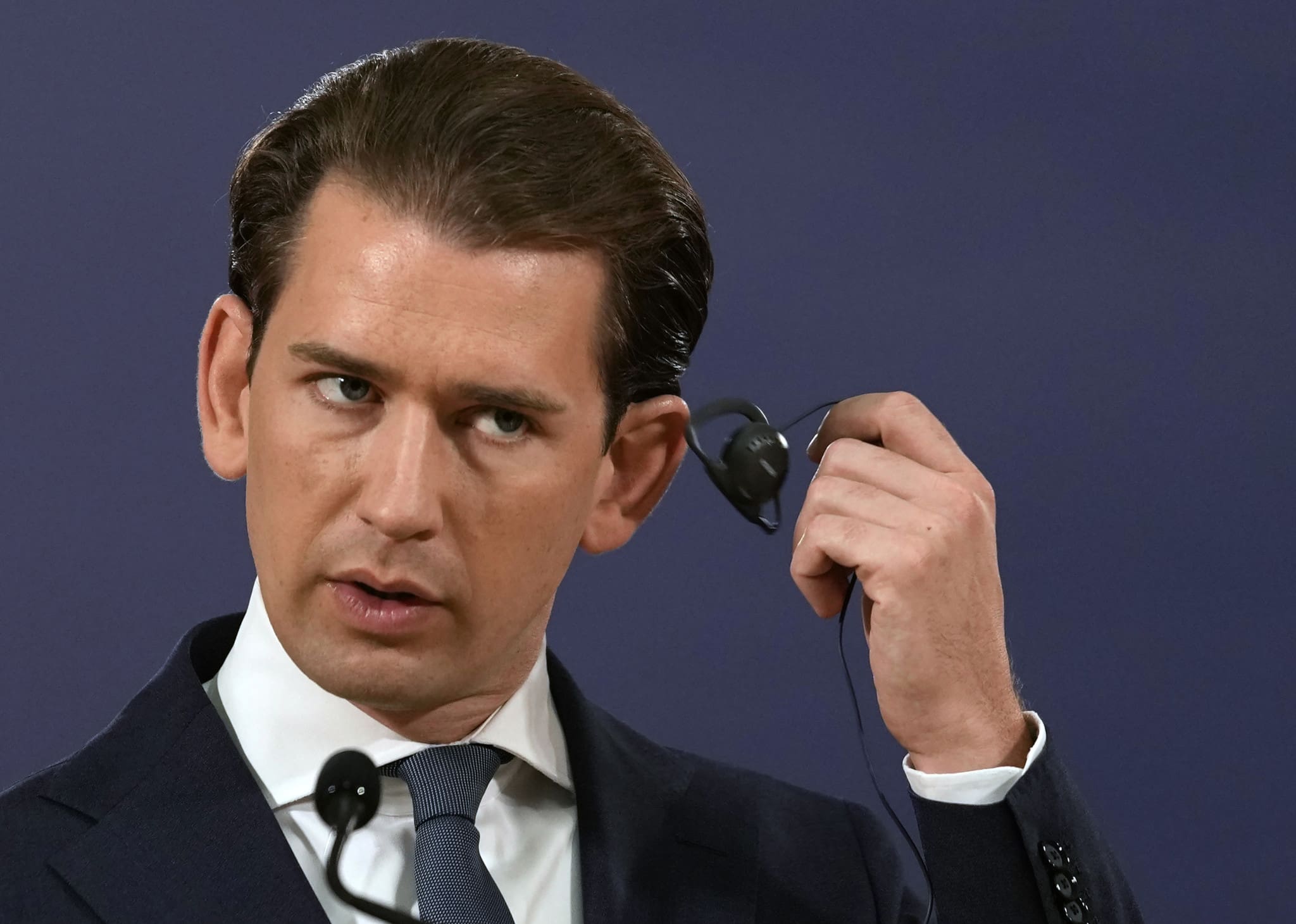There is no question about whether the Austrian chancellor jumped or was pushed when he announced his resignation on Saturday. His coalition partners the Greens have put the knife to Sebastian Kurz’s neck when they have initiated a vote of confidence against the embattled chancellor for Tuesday, which he was almost certainly bound to lose. Kurz has managed a curious balance to stay in power by being an unreliable political partner to the dominant European liberal movements, and despite leading a conservative party in name, an equally unreliable partner to conservative governments.
His will and ability to survive was amply demonstrated by the fact that after his government coalition with the right-wing FPÖ fell apart, without flinching, he was able to form another one with the radical left-wing Austrian Greens. Yet, it seems his lust for power has become his undoing, as the revelations that led him to resign showed us a 35-years-old politician who is willing to do almost anything to cling to power.
Kurz was forced to resign due to a corruption and opinion poll manipulation scandal, in which his party’s (ÖVP) officials have allegedly distributed some doctored opinion poll results that favored the chancellor’s party, witht he polls allegedly financed with public funds. He also allegedly offered some advertising space to media outlets that have agreed to run the questionable data.
Kurz denies any involvement in the affair, yet whichever way the anti-corruption prosecutor’s investigation will go, some older text messages published in connection with the corruption affair between Kurz and his party officials, will do little to enhance his image as the young, idealistic politician that many Austrians were so enthusiastic about. It will also demolish his purer than pure image that he nurtured after his withdrawal from the coalition with the FPÖ, distancing himself from the nationalists’ leader Heinz-Christian Strache by saying “I can no longer work with a member of the government who is being investigated by the police.”
Strache did not fail to capitalize on Kurz’s present misfortunes by tweeting, “If you fail and break by the standard of your own quotes!”
But the ÖVP’s coalition Greens seem to be more forgiving. They appear to be content with Kurz’s resignation from the position of the chancellor even though he will remain an MP and the head of the ÖVP. He will be replaced by foreign minister Alexander Schallenberg, a move that the Greens have welcomed as an acceptable compromise for the continuation of the current government.
Some of the smaller coalition parties, such as the liberal NEO or the left-wing Social Democrats (SPÖ) have complained about the Green’s opportunism because they hoped for the chance of a four-party coalition without Kurz’s ÖVP, but there is little chance of that happening.
After the defeat of Andrej Babiš in the Czech elections on Saturday, the left-wing European press is celebrating the fall of another conservative European leader. But these celebrations are a founded on wishful thinking. Kurz was no true conservative, and no right-wing politician either. He was a foreign minister in the government of social democrat Werner Faymann, who in 2015, amid the peak of the migrant invasion of Europe called Viktor Orbán a de facto fascist when he likened the Hungarian government’s decision to build a fence to the Nazis. Kurz seemed to have no problem with these statements, despite the fact that he is now one of the few European politicians who are calling for the stop to mass immigration and has been unwilling to accept Afghan refugees.
Kurz also nodded enthusiastically after the publication of the now discredited Sargentini report that depicted conservative-led Hungary as a dictatorship. He was also unwilling and unable to follow through his policies without the approval of German Chancellor Angela Merkel, which is a sign that he could have shifted further to the left with the accession of the coming, most likely, more left-wing German government.
Kurz was a malleable politician able to maneuver his personal ideological profile in any shape that suited his own political rise, and wherever opinion polls guided him to pick up extra votes. Apart from perhaps his popular sentiment-driven anti-migration stance that remained largely on the level of declarations, he leaves behind virtually no policies or achievements that could positively be described as having a conservative character, only a radical leftist, pro-migration, climate cult-peddling Green party in power.
His successor, Alexander Schallenberg, is not expected to divert significantly from Kurz-era policies, but the question is whether he will be able to appease the Greens to the point of holding together their coalition. More importantly, will he be able to risk tensions with a new Germany which is rapidly sliding in to a progressive utopia, or will he be inspired by the success of his more conservative neighbors to the East and Northeast?






